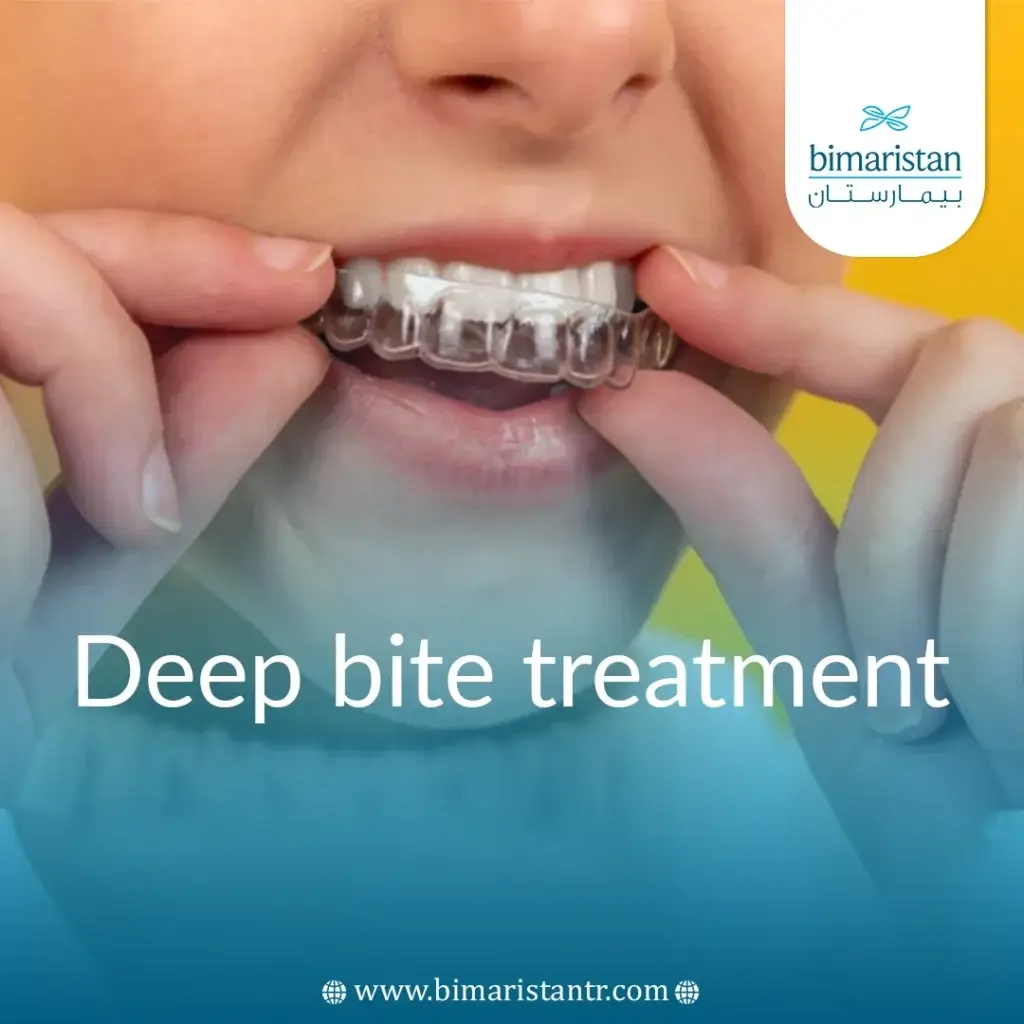A deep bite is a form of malocclusion that, if left untreated, leads to tooth erosion and pressure on the jaw joints. The article will discuss the causes and methods of deep bite treatment in Turkey.
What is the deep bite?
A deep bite is an imbalance that occurs when the upper front teeth cover the lower front teeth excessively when the back teeth are closed. It is also called an overbite or closed bite and is a type of malocclusion. The term malocclusion is used when there are misaligned or crooked teeth.
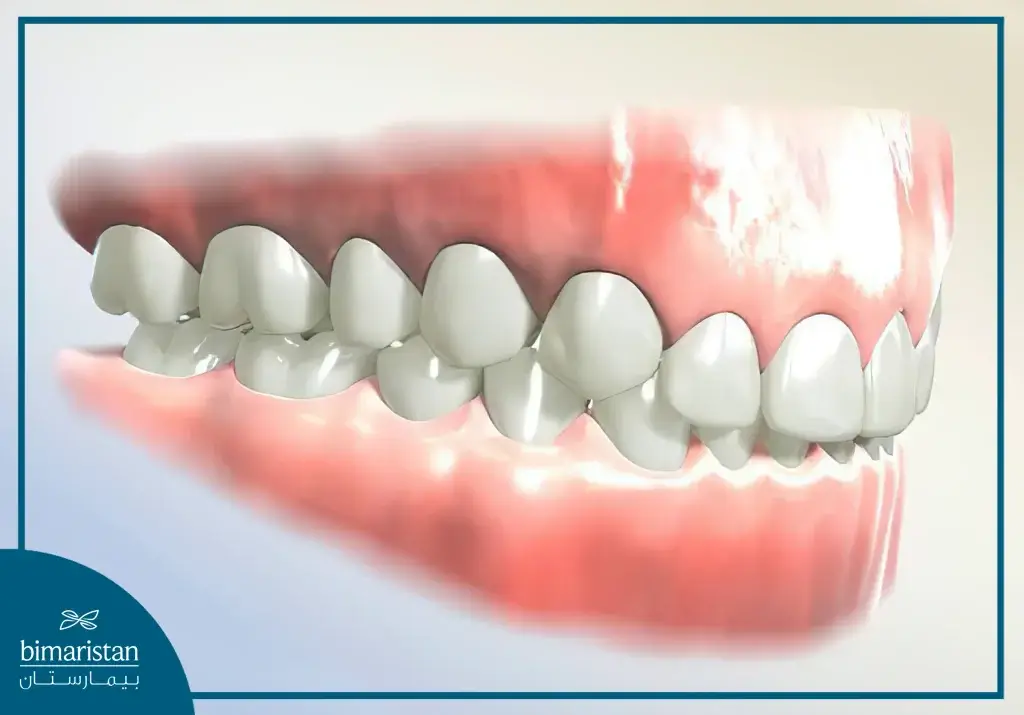
While a deep bite may or may not be an aesthetic concern, its presence usually indicates other issues that need to be addressed.
How is a deep bite diagnosed?
It is usually your dentist who first notices an overbite during an examination. Your dentist may take dental X-rays to further examine the overbite and how your teeth overlap.
Your doctor may refer you to an orthodontist.
How does a deep bite affect the body?
Severe cases of a bite may result in:
- Breathing Problems
- Difficulty or pain while chewing
- Gingivitis
- Jaw pain or temporomandibular joint disorders (TMD)
- Tooth decay
- Speech Problems
Causes of a deep bite
The most common cause, according to the American Association of Orthodontists, is a small lower jaw. The upper teeth are placed further forward when the lower jaw is shorter than the upper jaw. The lower teeth continue to grow until they hit the back of the upper teeth or the roof of the mouth and are often pressed together, causing crowding and alignment issues. This genetic cause runs in families where genetic traits such as the shape of the jawbone affect the alignment of a person’s teeth.
Another reason for a deep bite is the loss of a lower tooth, which creates a condition similar to a shortened lower jaw. Overly strong chewing muscles are common in bruxism patients who clench or grind their teeth, which can further deepen the bite.
Other causes include:
- Excessive nail biting
- Thumb-sucking or non-food-sucking behavior that occurs after age 3
- Tongue thrust, when the tongue is pressed too far forward in the mouth
- Using a pacifier, especially after the age of 3
What are the symptoms of a deep bite?
The primary symptom of a bite is the appearance of the face and smile where the upper and lower front teeth overlap; you may also experience one of the following symptoms:
- Difficulty opening or closing your mouth fully
- Discomfort while eating
- Jaw pain
- Speech difficulties
Why should a deep bite be treated?
In addition to solving the cosmetic issue, there are at least four other reasons:
- Excessively tilted lower incisors wear out very quickly, and patients who grind or clench their lower teeth against the upper ones suffer from excessive wear that can cause loss of tooth structure.
- If a patient’s teeth press against the roof of their mouth, painful sores or lesions may appear, making normal eating very uncomfortable.
Suppose a significant amount of tooth structure has been lost. In that case, the orthodontist will need to reestablish the space needed for the restoration by moving the upper and lower teeth away from each other, which is called bite lift treatment.
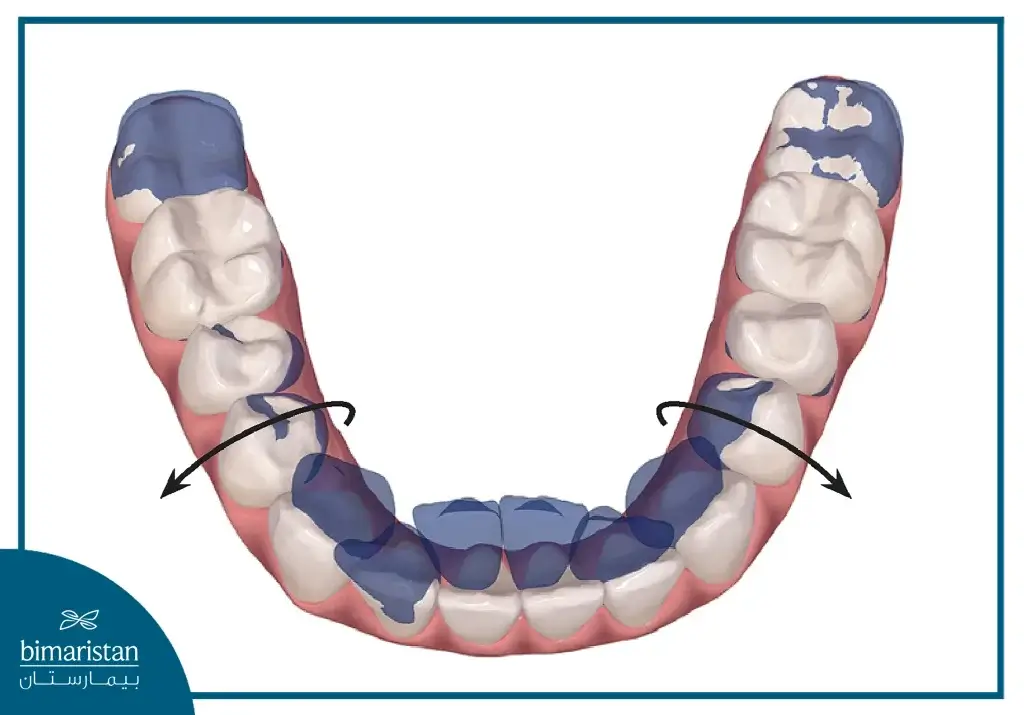
The crowding and twisting that accompany a deep bite usually require correcting the deep bite to allow space for the crowded teeth to align.
How is deep bite treatment done?
Each case of deep bite must be considered individually. You may have other issues related to the condition that will also need to be addressed. Your age also affects your treatment plan, as deep bite treatment differs between children and older adults.
Here are some of the different deep bite treatment methods that your doctor may suggest:
tooth extraction
Your doctor may recommend removing some teeth, including back teeth, to help realign the occlusion or make room for other teeth to erupt in a favorable position.
In children receiving treatment for deep bites, temporary or permanent teeth may need to be removed to help correct the crowding.
Orthodontic appliances
Orthodontic treatment offers several orthodontic appliances that can help you treat the bite.
- Orthodontic braces are brackets attached to teeth connected to wires that your dentist tightens during orthodontic treatment to slowly move all of your teeth into the correct position.
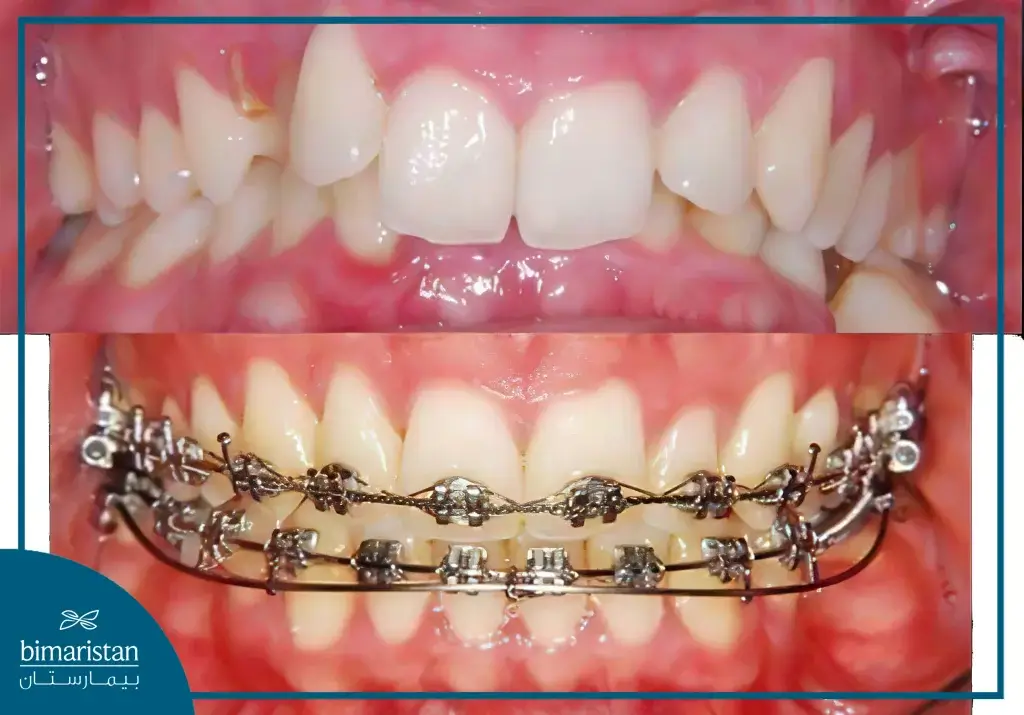
- Retainers are removable devices made of wires and plastic that can be removed if necessary, but you will likely need to wear them for most of the day.
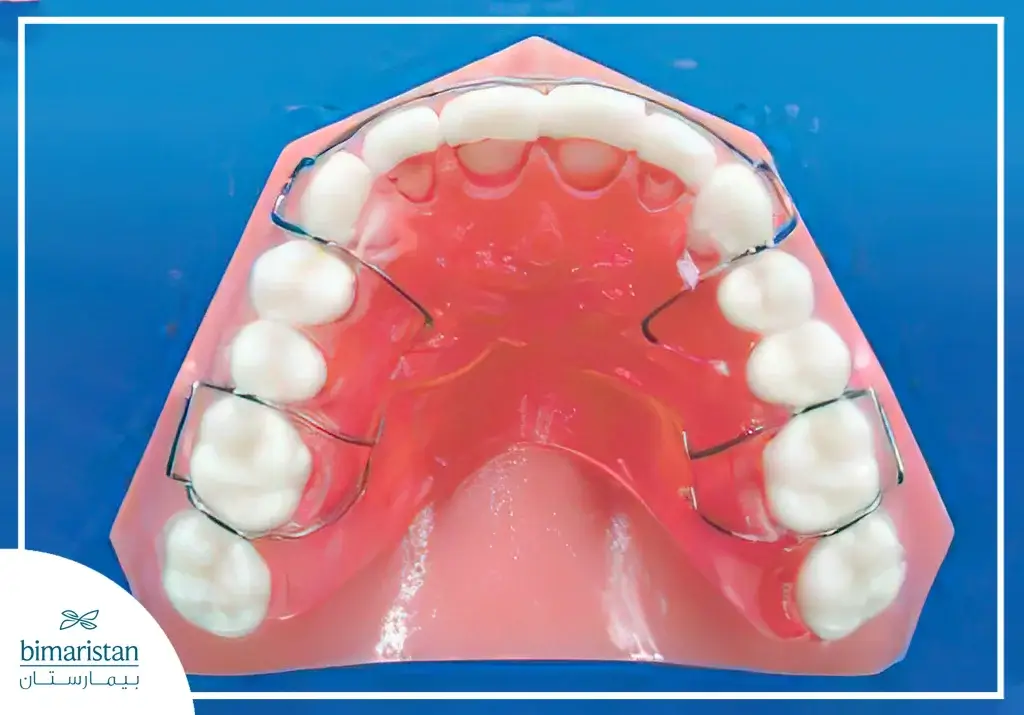
- Clear aligners are trays that correct the overlap of your teeth over time and are an alternative to traditional braces.
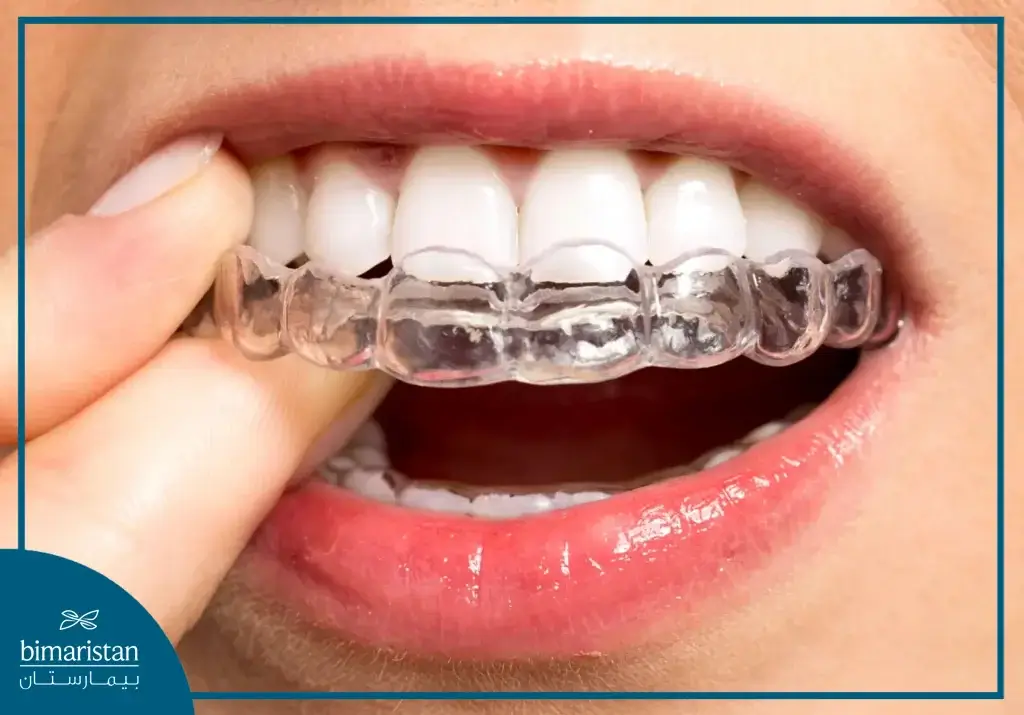
- Lingual braces are preferred by many because they are invisible.
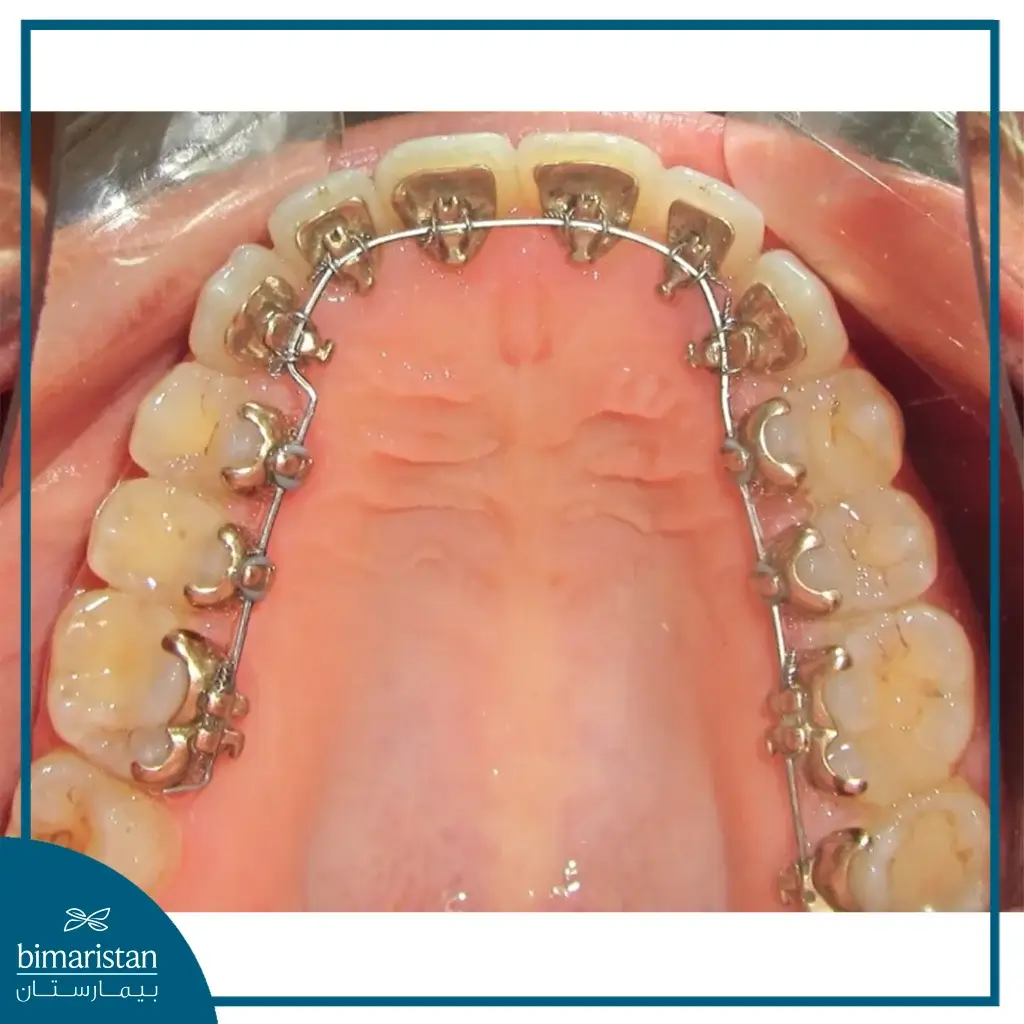
Some dental appliance fixtures are prefabricated, and others are custom-made to fit your mouth.
One 2019 study reported that off-the-shelf devices may reduce deep bite but are less effective than customized devices and are less common.
You may need to wear orthodontic appliances for several months or more than one year to correct a deep bite and other orthodontic conditions.
Dental Treatment, Restoration, and Implants
Your doctor may decide that repairing your back teeth will minimize your deep bite. This may include building up crumbling teeth or adding dental implants to improve their alignment. You can learn about the one-day dental implant technique available in Turkey.
Surgery
Your doctor may suggest jaw surgery to correct bone structure for deep bite treatment, especially if structural issues cause the condition. This treatment is often more suitable for older teens and adults whose bones have stopped growing.
Your treatment may include wearing braces or other orthotic devices before and after the procedure, a hospital stay, general anesthesia, and several weeks of recovery.
How can I prevent a deep bite?
Sometimes overbites are caused by uncontrollable factors such as genetics, in children you can help prevent them by:
- Avoid sippy cups with spill-proof valves.
- Stop thumb-sucking after infancy.
- Limit pacifier use starting at around 3 years of age.
- To schedule a dental visit according to age, do not hesitate to contact the Bimaristan Center, free consultations around the clock.
Tips for people with a deep bite
If you have a deep bite, you can keep your teeth and mouth healthy by:
- Practice excellent oral hygiene.
- Use a night guard if you experience pushing, grinding, or clenching your teeth while you sleep.
- Visit your dentist every six months.
- Wear a mouth guard during contact sports to avoid injury.
Sources:
- American Association of Orthodontists
- Windsor Center for Advanced Dentistry
- Chisel Dental Clinic
- Healthline
